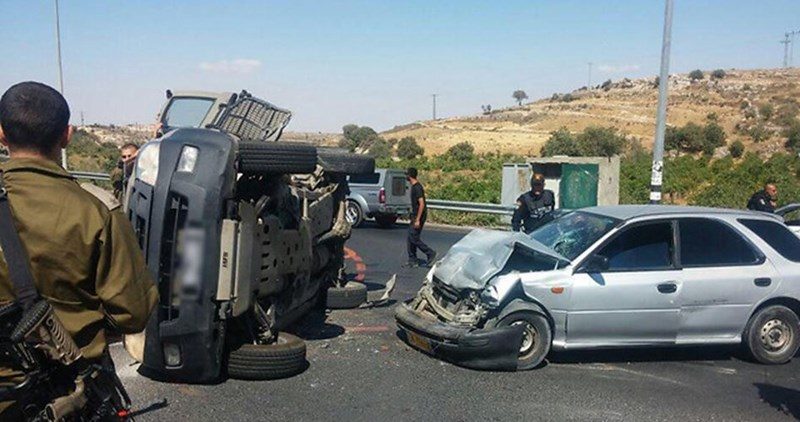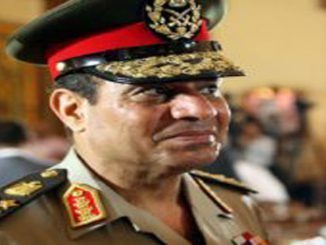
Right after al-Radwah mosque attack in Sinai, President Trump decried the attack on “innocent and defenseless worshipers” and used the occasion to again denounce extremist Islamist ideology.
He also renewed calls for a wall on the U.S.-Mexico border, though analysts largely reject the notion of any vast jihadist infiltration in to the United States from the south.
However, nothing was really said about al-Sisi’s policies in Egypt that would fuel terrorism in the country. Trump remains Abdel Fattah al-Sisi’s loudest cheerleader in the West, despite al-Sisi’s repressive rule.
During al-Sisi’s military rule, thousands of suspected Islamists and dissidents have been detained and the space for civil society has been squeezed.
Trump has hailed al-Sisi’s no-nonsense attitude and his recognition and his recognition that “this ideology of death” — a reference to Islamist extremism — “must be extinguished.”
Last Friday, Egypt was rocked at noon by a coordinated assault by gunmen on a mosque in the Sinai Peninsula. Gunmen opened fire on worshippers during Friday noon prayers – the most important period of observance for Muslims, where mosques are usually crowded – killing 235 people and injuring 109 others.
During the noon sermon, four off-road vehicles carrying armed men arrived at the al-Radwah mosque in Bir al-Abed, a small village 40km west of North Sinai’s main city Al-Arish.
According to survivors, militants opened fire from the vehicles and gunned down any people who tried to flee the building. Three police officers on the scene said that also blocked off escape routes from the area by blowing up cars and leaving the burning wrecks blocking the roads.
Until now no group claimed responsibility, but most security experts pointed towards ISIS in Sinai. ISIS’ Sinai affiliate – known as the Sinai Province group – first emerged in 2011, and was previously known as Ansar Beit al-Maqdis. It pledged allegiance to ISIS after the declaration of their so-called caliphate across Syria and Iraq in 2014.
Since then, the militant group was responsible for near-weekly attacks on the army and police in Sinai. It has also claimed responsibility for dozens of attacks, including the 2015 bomb abroad a Metro Jet flight which killed 224 people, many of them Russian tourists.
On the other hands, many media outlets blamed the attacks on al-Sisi’s policies saying that his policy is the one responsible for the escalating of terrorism in Egypt.
The Washington post criticized Trump’s blind eye policy towards al-Sisi’s policies especially that he didn’t do any development to limit terrorism, saying that,” But it doesn’t seem that Sisi is doing a particularly effective job.”
It added,”the Egyptian military has been engaged in a grueling and bloody counterinsurgency in northern Sinai for years — particularly since al-Sisi came to power in a 2013 coup — and both their campaign and the terrorist attacks show no signs of winding down.”
Analysts said that al-Sisi’s approach has not helped the situation. Heavy-handed tactics have alienated an already embittered civilian population. Rights groups reported earlier this year that Egyptian troops carried out the extrajudicial executions of unarmed detainees.
Amnesty International detailed a campaign of torture,disappearances and assassinations conducted by Egyptian authorities.
Mohannad Sabry, the author of a book on Sinai, to the New York Times said, “The military has never cared for civilian losses.” He added,”The excessive and reckless use of force has killed entire families. We’ve seen airstrikes blow people up in their homes. We’ve seen villages razed off the face of the earth. That tells you something about how they see Sinai society.”
A local woman spoke to reporters outside a hospital that was tending to victims of the attack. She said,”The military will keep jailing and killing local young people. The terrorists who hate us and the Christians will keep using it as an excuse to kill us.”
In the same context, Guardian mentioned this week that al-Sisi’s “iron fist” tactics have proved futile. The ISIS connection appears to be strengthening as the terror group’s “caliphate” in Iraq and Syria is degraded. ISIS is reportedly regrouping in neighboring Libya. Northern Sinai may also become a destination of choice for displaced jihadis.
It added that “al-Sisi’s addiction to violence is a kind of madness. Egyptian leaders before him, notably Hosni Mubarak, all tried to physically crush their opponents. They all failed. And Sisi will, too.”
In the end, based on experience more killings, repression and dictatorial rule will trigger more violence in the country. Only when the state systemic violence vanish, the violence of non-state actors will also disappear.



